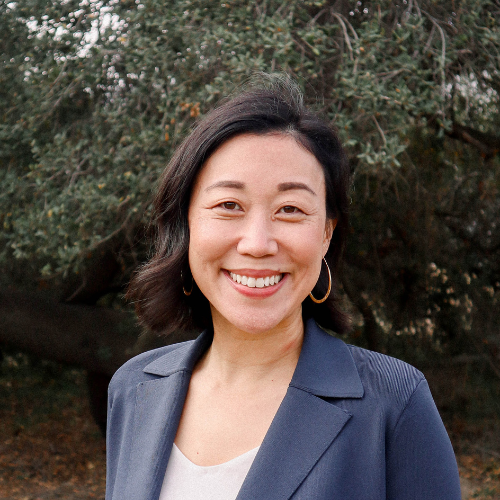Commentary on 1 John 3:16-24
Words are powerful, and as preachers, we do not take our own words or the proclamation of God’s word lightly. And while words matter, talk can be cheap and convey feelings of love without offering demonstrations of love.
For the author of 1 John, “words and speech” are inadequate expressions of love. God in Christ demonstrates love (agapē) “in truth and action” (3:18), and as his children, we should do the same: “We know love by this, that [Jesus] laid down his life for us—and we ought to lay down our lives for one another” (3:16). Similarly, in John 15:12–14, Jesus uses his example of self-giving love as the motivation for his followers to follow suit: “No one has greater love than this, to lay down one’s life for one’s friends” (John 15:13).
Nowhere else but in 1 John and the Gospel of John do we find this language of Jesus “laying down his life.” In 1 John 3:16, Jesus’ action is not explicitly associated with death, as it seems to be in John 10:17, or with atonement, as it is in Mark 10:45. The fact that we ought to lay down our lives for our brothers and sisters makes it more likely that the author is not referring here to Christ’s inimitable atoning work on the cross. Rather, in light of the emphasis on active and truthful expressions of communal love, “laying down our lives” resembles what Paul says in Philippians 2:4: “Let each of you look not to your own interests, but to the interests of others.”
First John emphasizes the intimate and familial relationship between the Father and those who love and obey the Son (3:10–11, 14, 23; 4:7, 11–12; 5:1). One of the privileges of being children of God is abiding and sharing in the love that unites and adheres believers to one another as siblings.
That said, the author warns against insidious hate, jealousy, and strife that can fester against believers outside of the church (3:13) but also within it. This is why he pleads, “We must not be like Cain” (3:12), and speaks of “all who hate a brother or sister” (3:15). He goes so far as to associate the act of hating (miseō) with murder or the willful destruction of another believer’s life. Such hyperbolic language underscores the power of our inner motives and attitudes (see also Matthew 5:21–22).
In contrast to hating, the act of loving (agapaō) is intrinsic to the gospel message (3:10) and promotes the spiritual, communal, and physical thriving of our brothers and sisters. To love “in truth and action” is to care for the earthly well-being of every member of the church: “But whoever has the world’s possessions and sees a brother or sister in need and refuses to help, how can the love of God reside in such a person?” (3:17, translation mine). “Whoever has the world’s possessions” refers to those who have enough to live on and are not in material need. While the author here does not explicitly mention “the poor,” he associates God’s love with the community’s care for the materially deprived among them.
The one who lacks materially in 3:17 is not some abstract “other” but a fellow believer, whom we are to regard as a sibling (adelphon, “brother”). The author uses the verb “see” (theōreō) to convey the idea of observing the needs of those in our Christian family with sustained attention and consideration. “Refuses to help” can be translated as “is callous toward” or “is indifferent to” and conveys a troubling lack of deep affection and compassion.
Do we pay attention to how our brothers and sisters are doing? Is our Christian fellowship thick enough that we can share honestly about our needs? Are we relationally invested enough in the community to take turns carrying one another’s burdens and doing whatever we can to alleviate our brother or sister’s hardships?
I once asked a pastor who lived modestly but was in the habit of giving generously how he determined the amount he gave to a relief agency our church partnered with and to a missionary our church sponsored. He answered, “I give until it hurts.”
We can easily gift others with our “thoughts and prayers” because, if we’re honest, they cost us little. But love expressed through thoughtful financial support and sustained attention to the causes of material lack and physical suffering costs us much. Our author seems to anticipate the reluctance to love in sacrificial ways, which is why he gives the affectionate but clear directive, “My dear children, let’s not just talk about love; let’s practice real love (3:18, The Message).
Real love is not only manifested in action but rooted in truth. It benefits not only those who receive it but also those who practice it because it helps us know that we belong to or “are from the truth” (3:19). Although the author in 3:19 is not saying that our belonging to God depends on our love for God and others, he implies that our acts of love are born out of our life in Christ. Just as everyone knows Jesus’ disciples by their love for one another (John 13:35), so we Christians know that we are living in the truth by our actions. Actions that emulate Jesus’ sacrificial love reassure us that Christ abides in us and that his Spirit is at work in us (3:24).
But even still, believers may struggle with the question “Is my love real or good enough?” or “Do I belong to God and the community of saints if I struggle to love others as God loves me?”
The author offers the assurance that God “is greater than our hearts, and he knows everything” (3:20). By this he means that God’s unfathomable greatness, perfect wisdom, and abiding love serve as the basis for our relationship with him and others. Even when our best intentions run out and our best efforts to love fall flat, Christ’s inexhaustible love remains our source. Christ puts us in right standing with God, and this unshakable truth emboldens us to pray to God freely and persist in our practice of real love, even if it hurts.



April 21, 2024